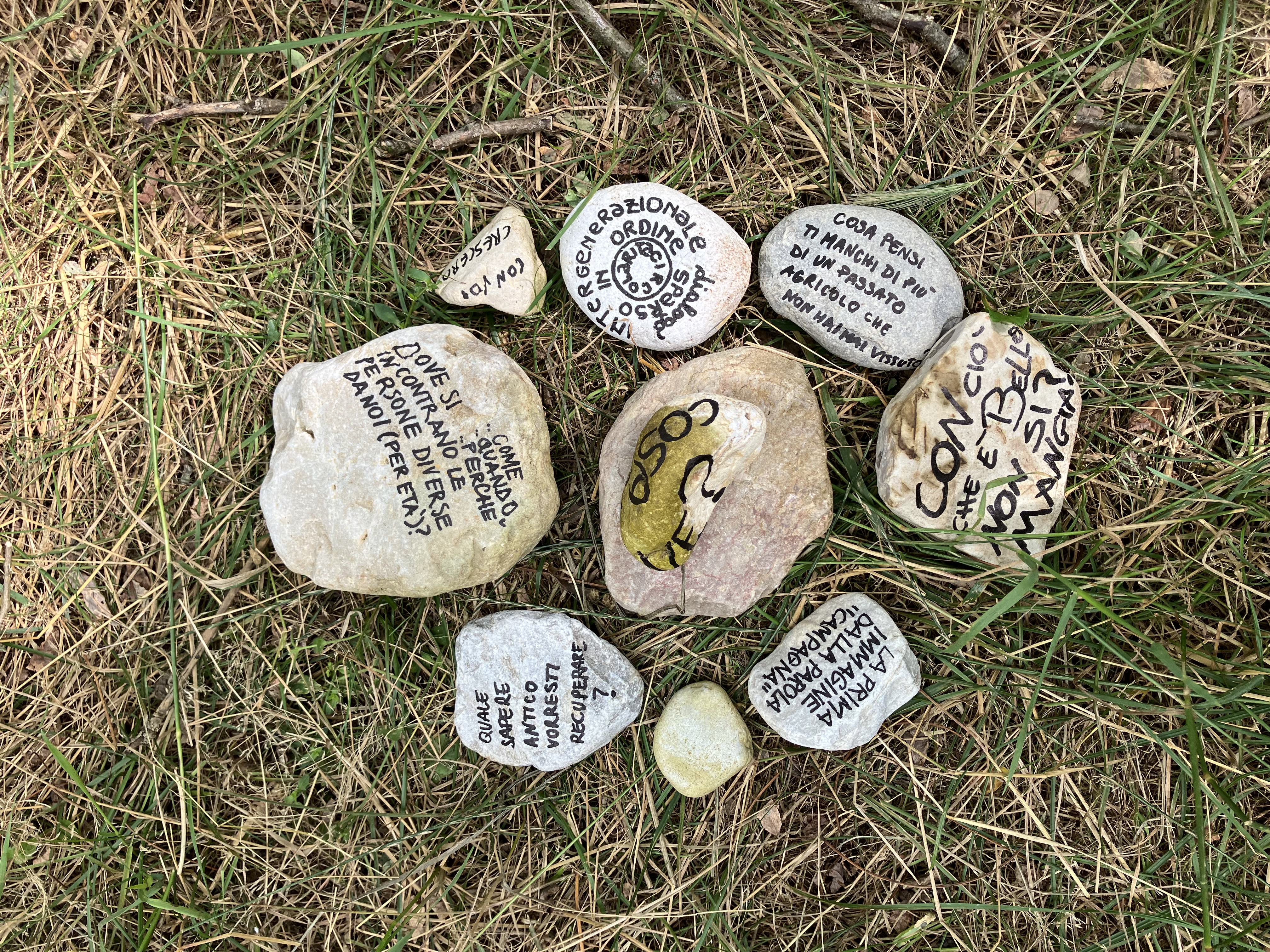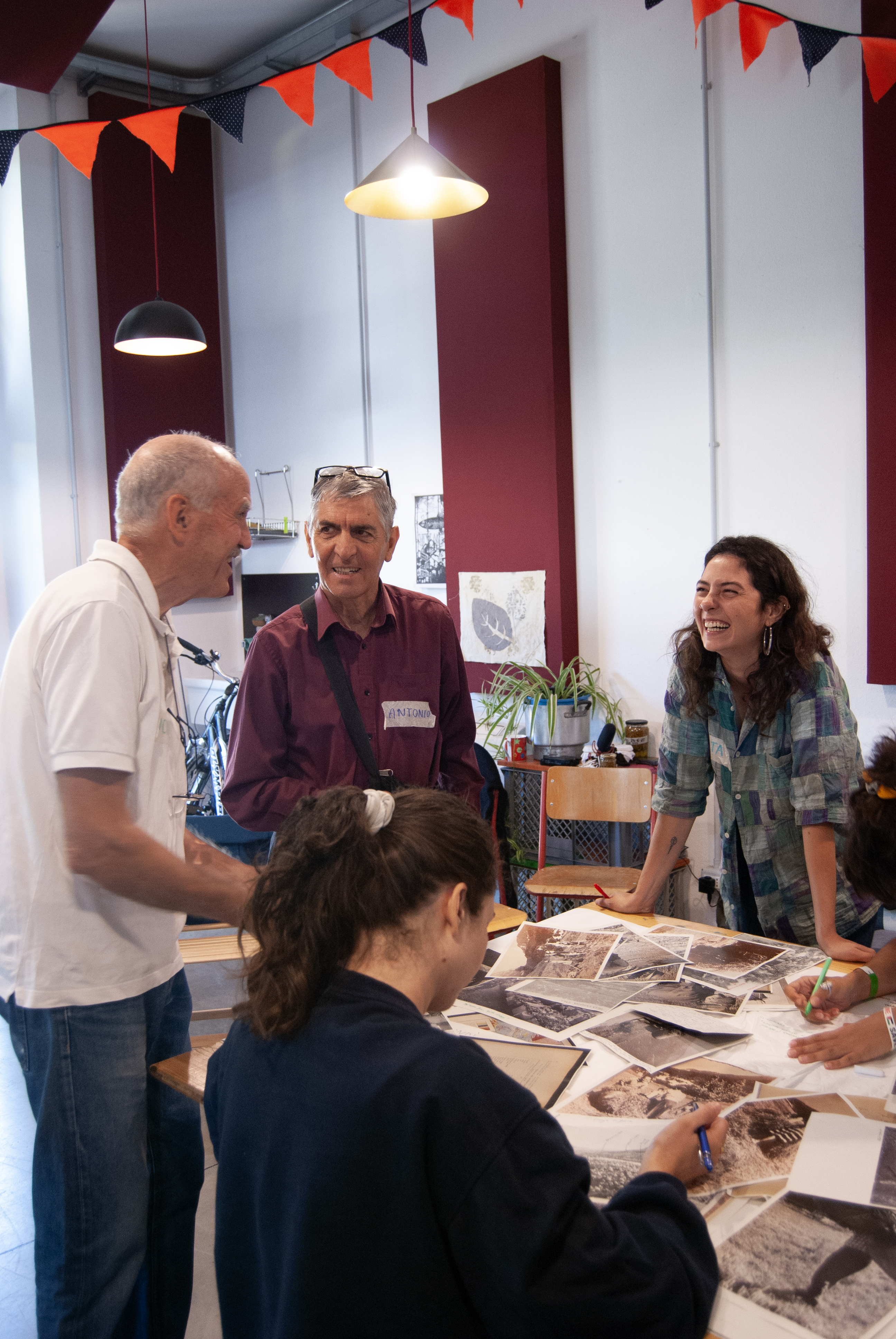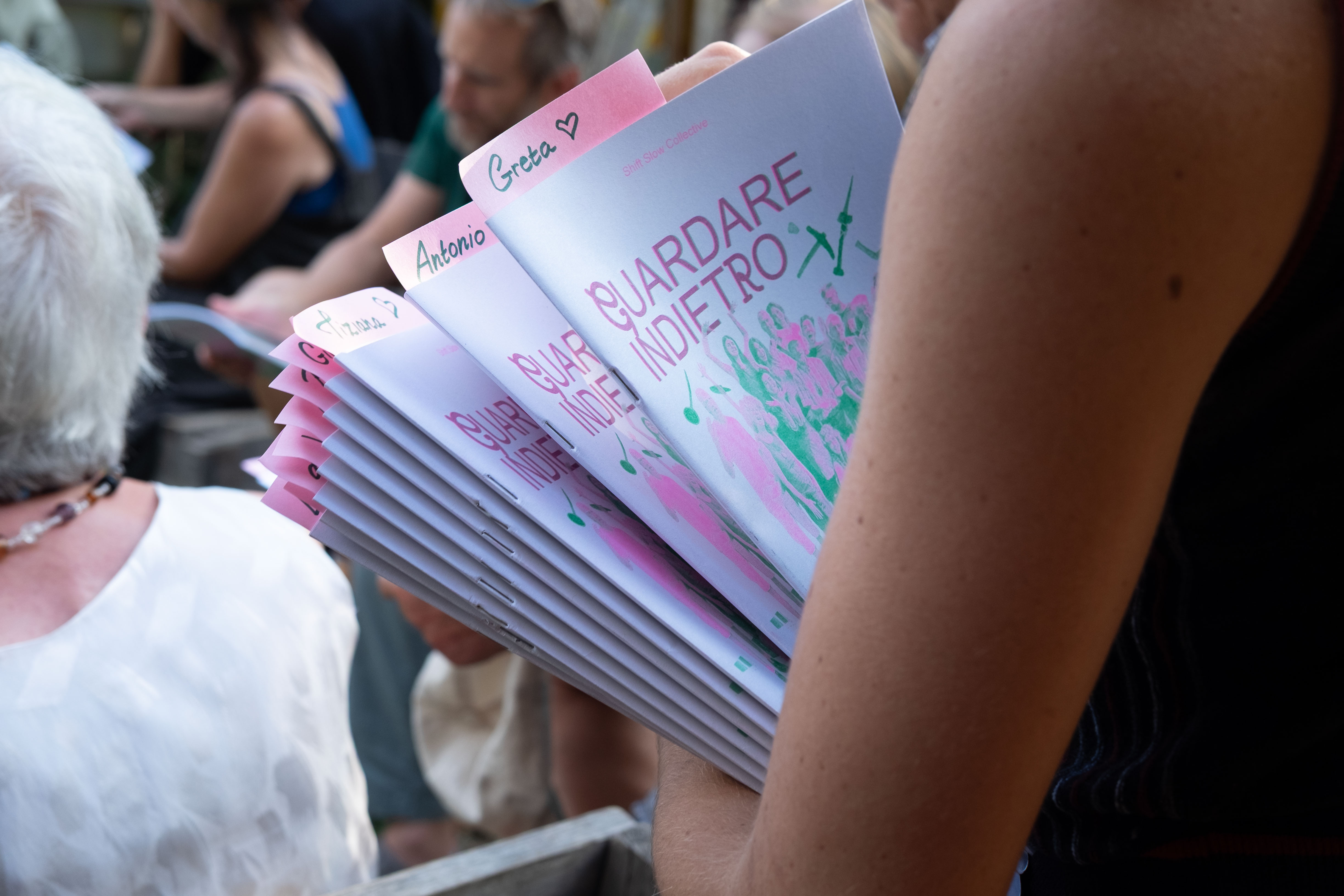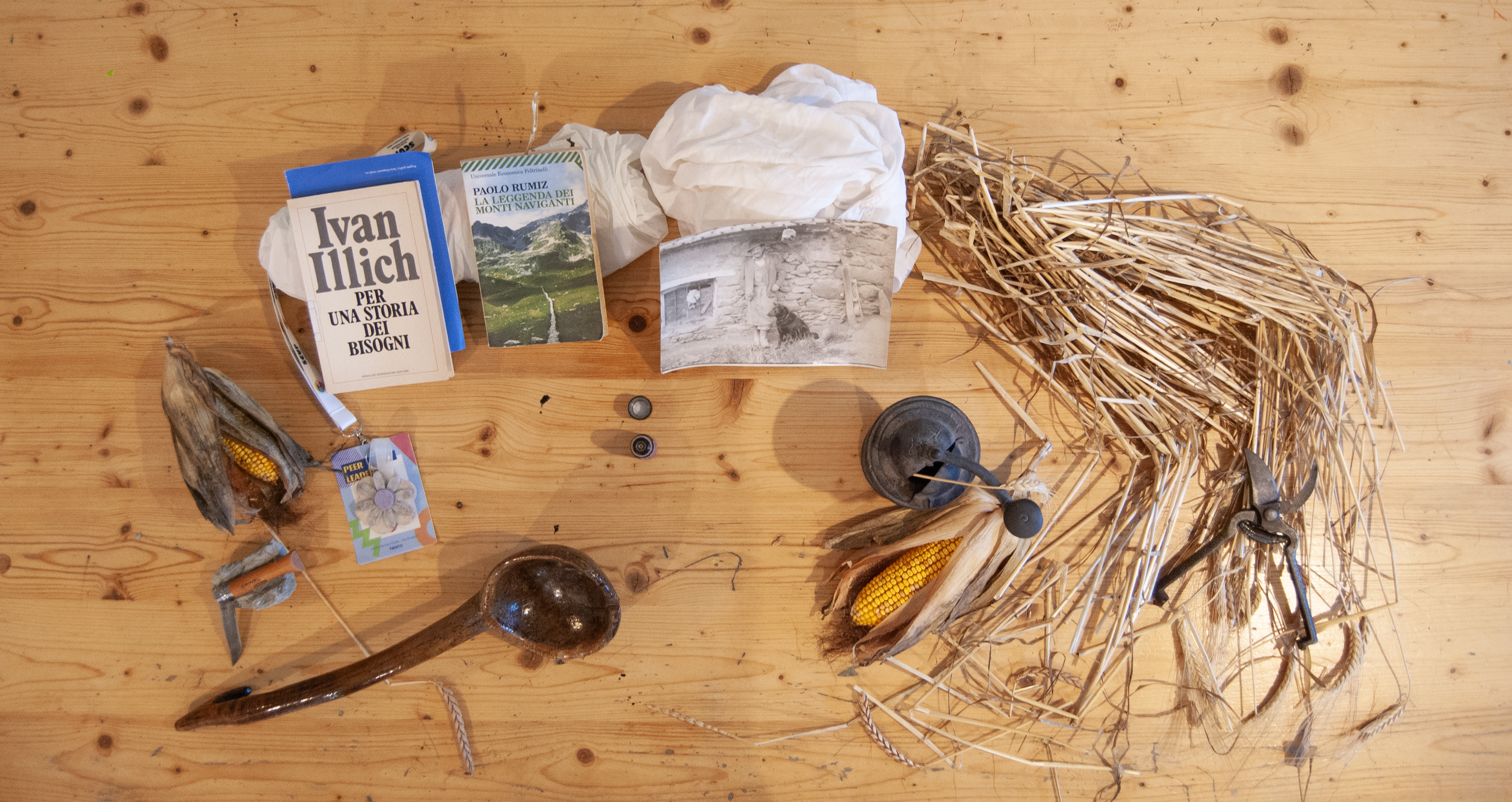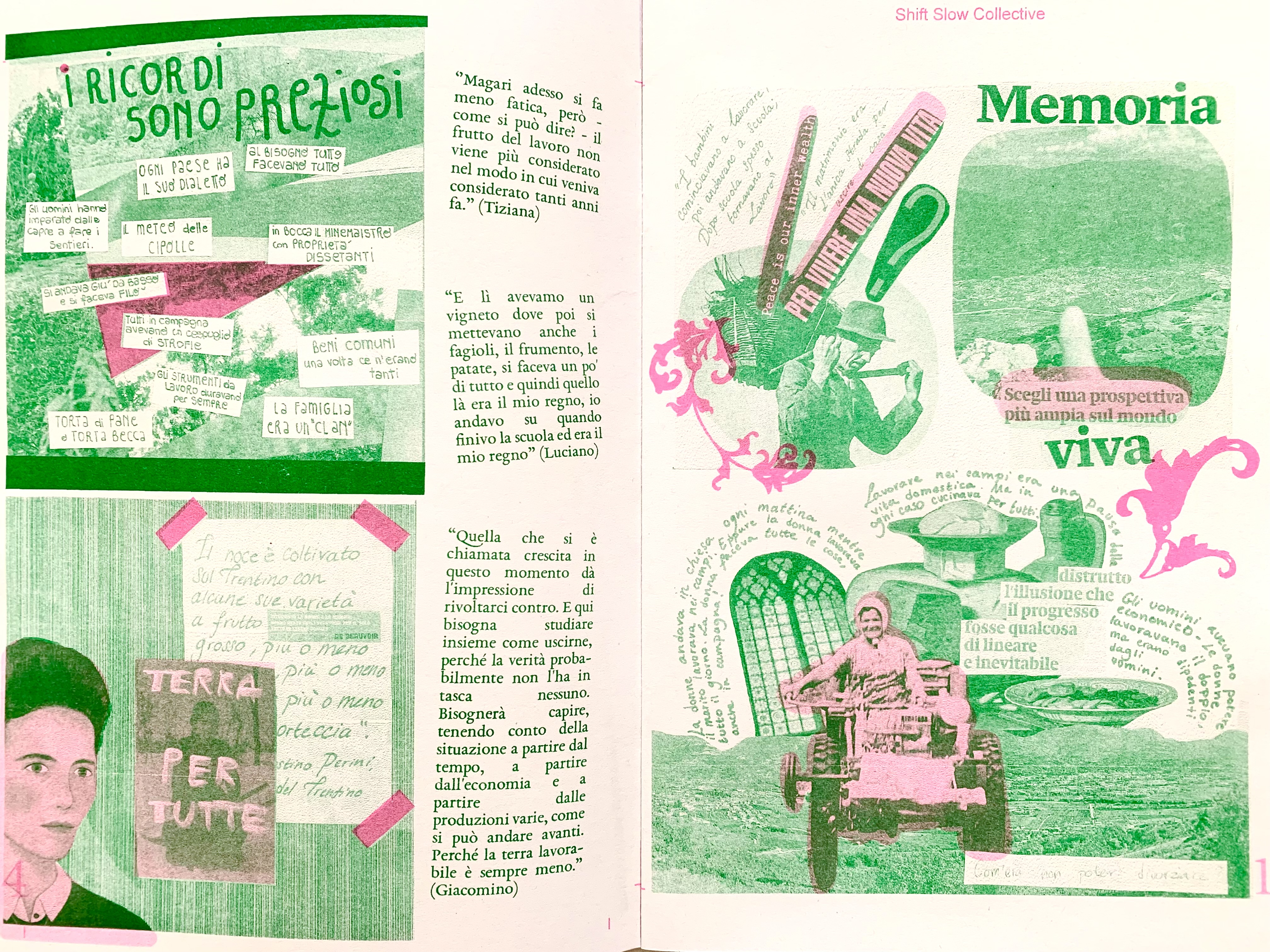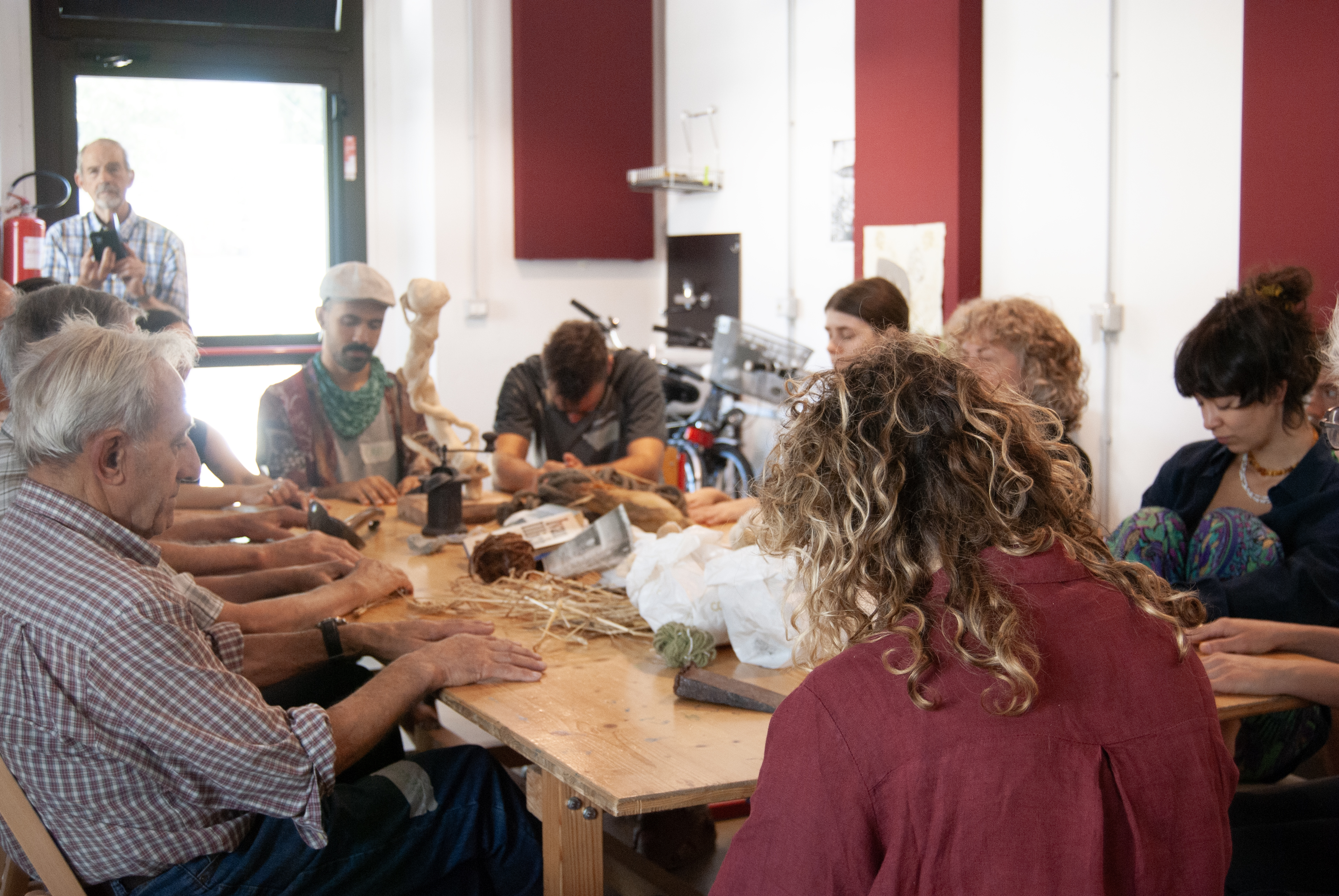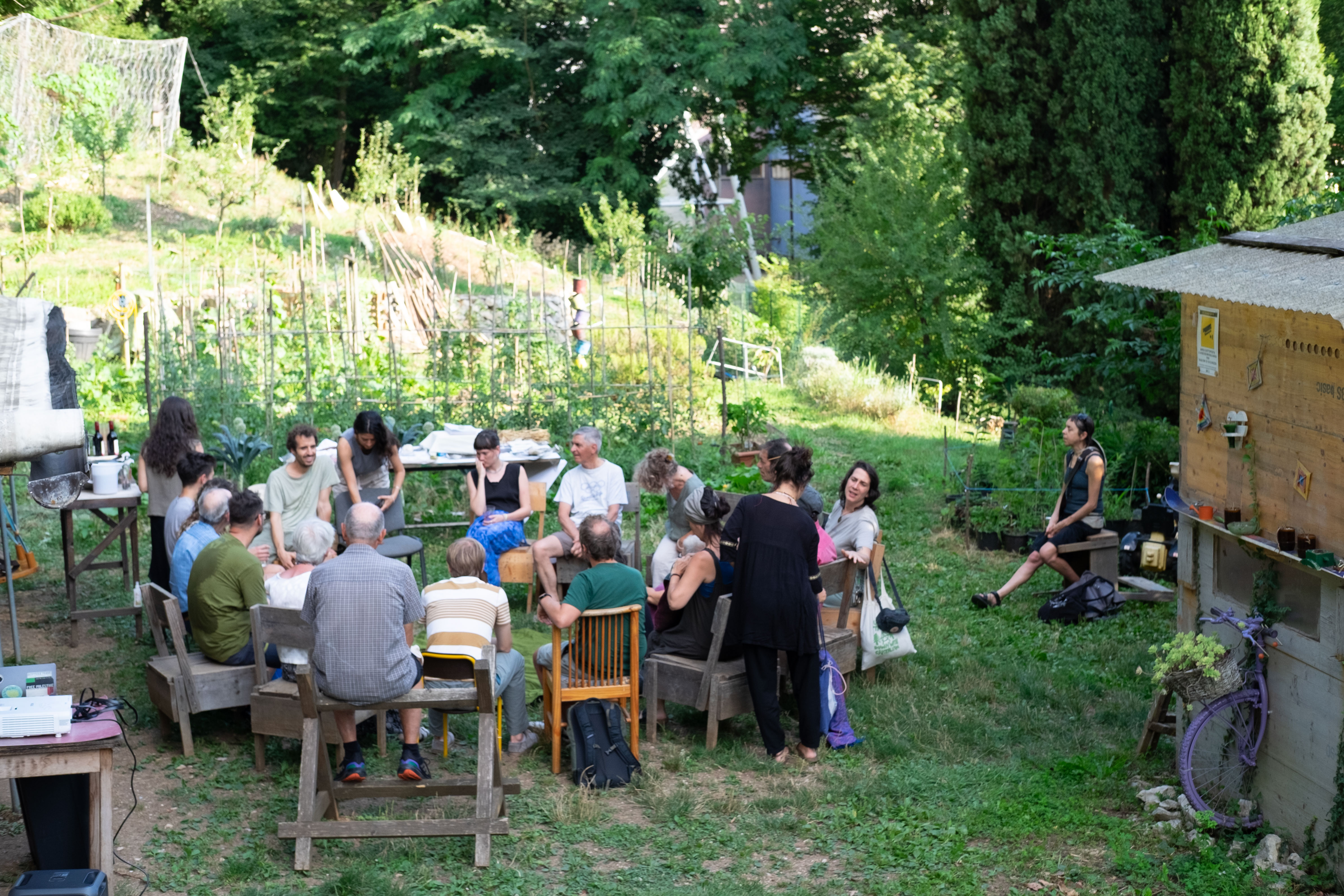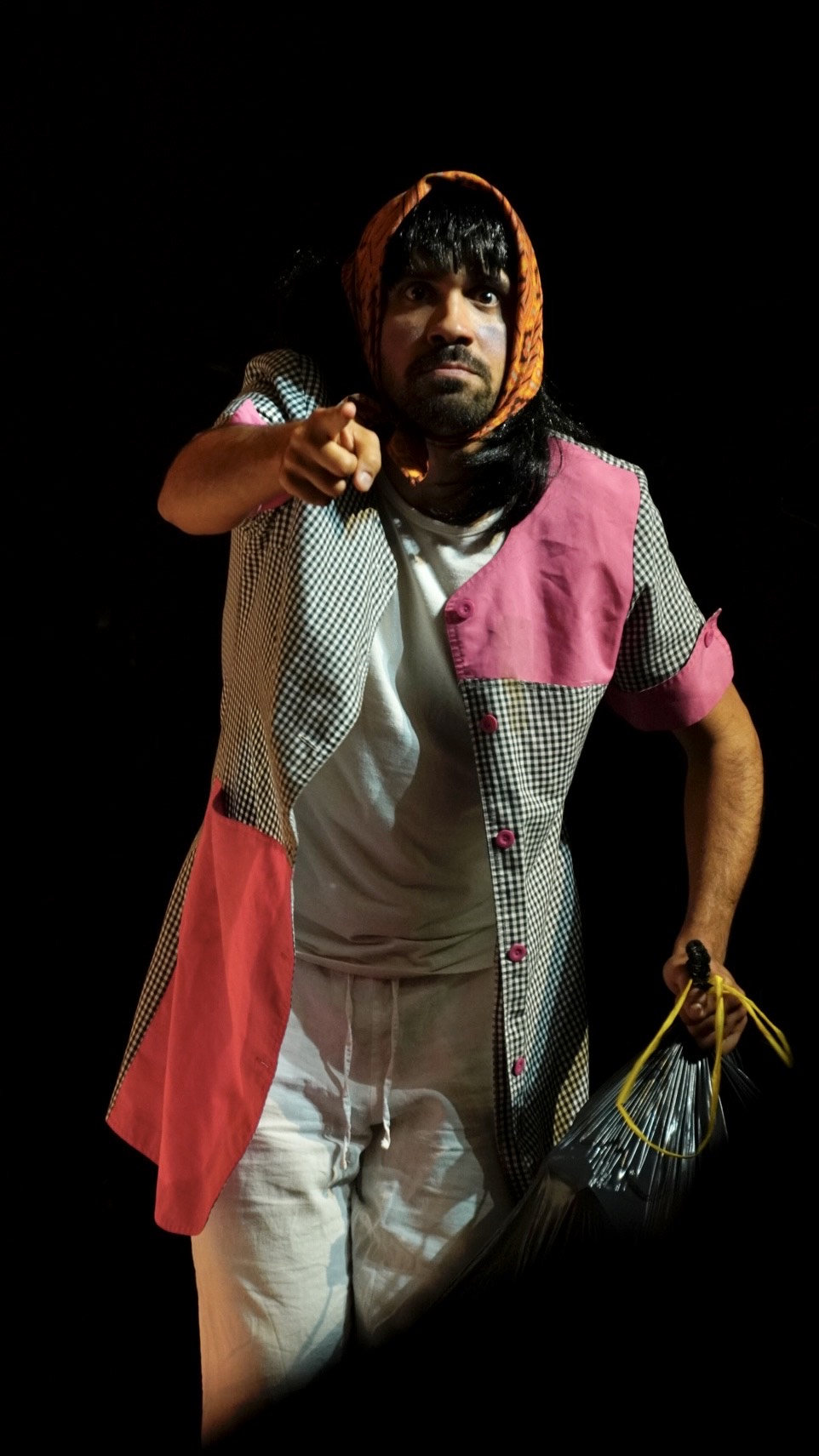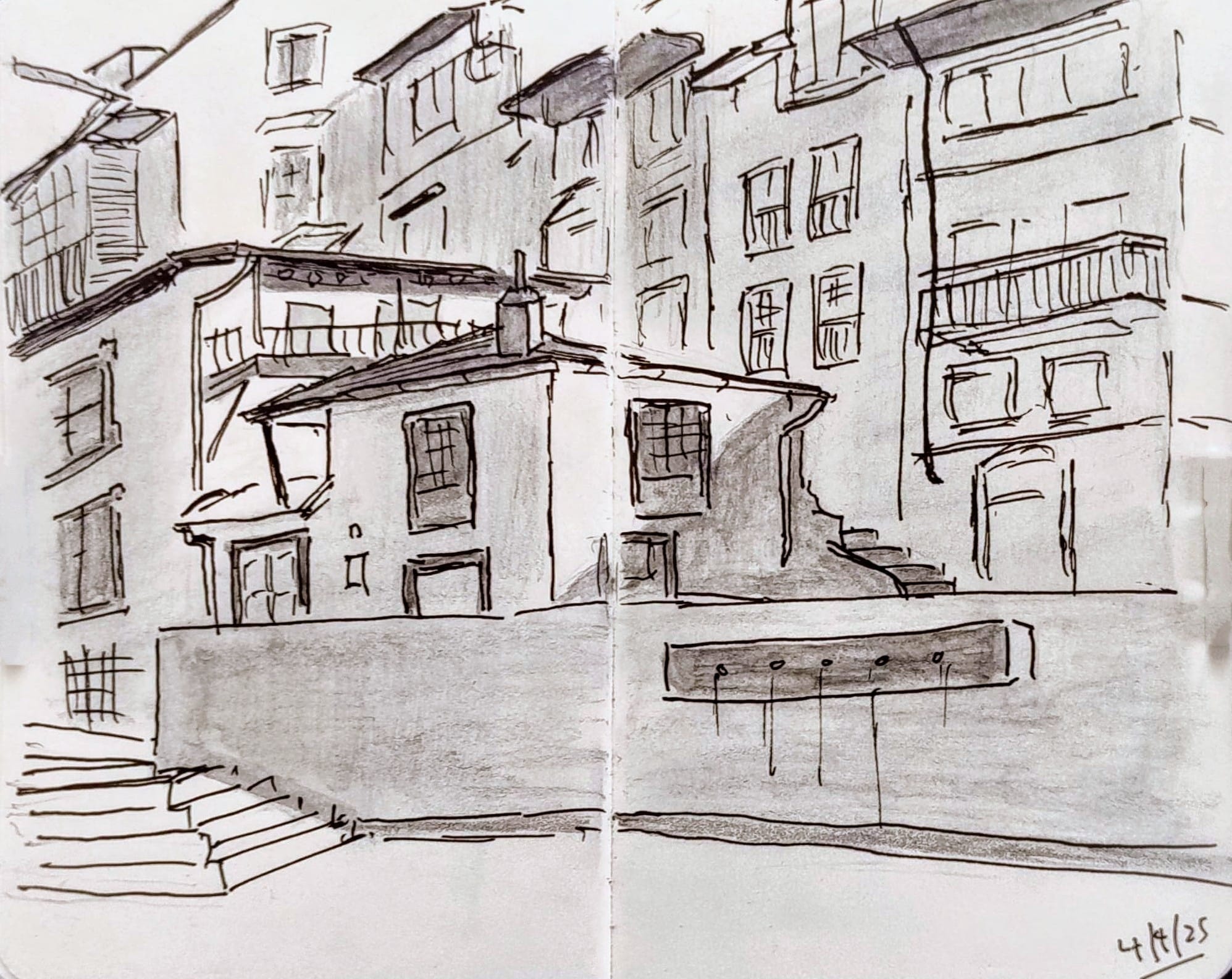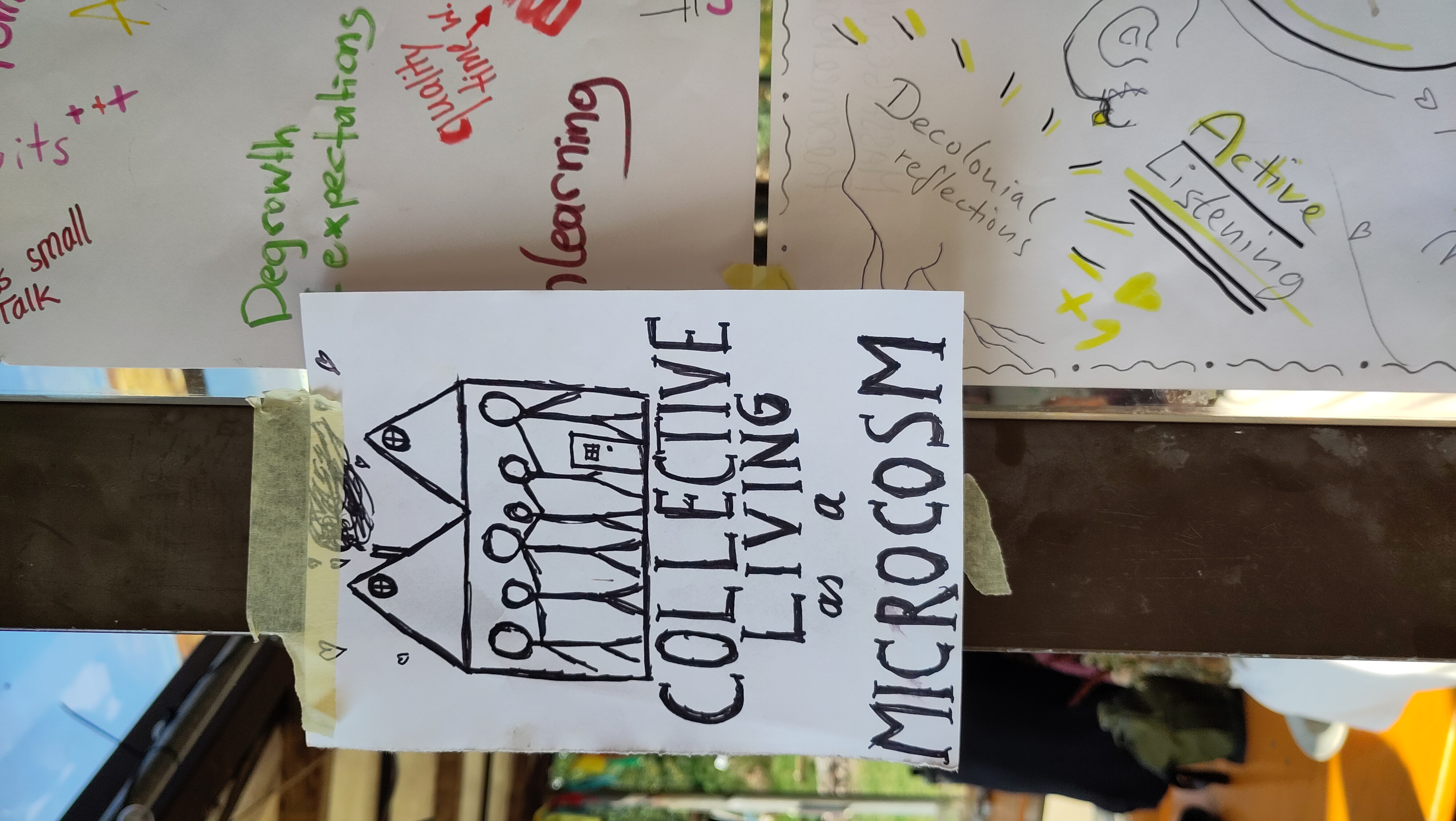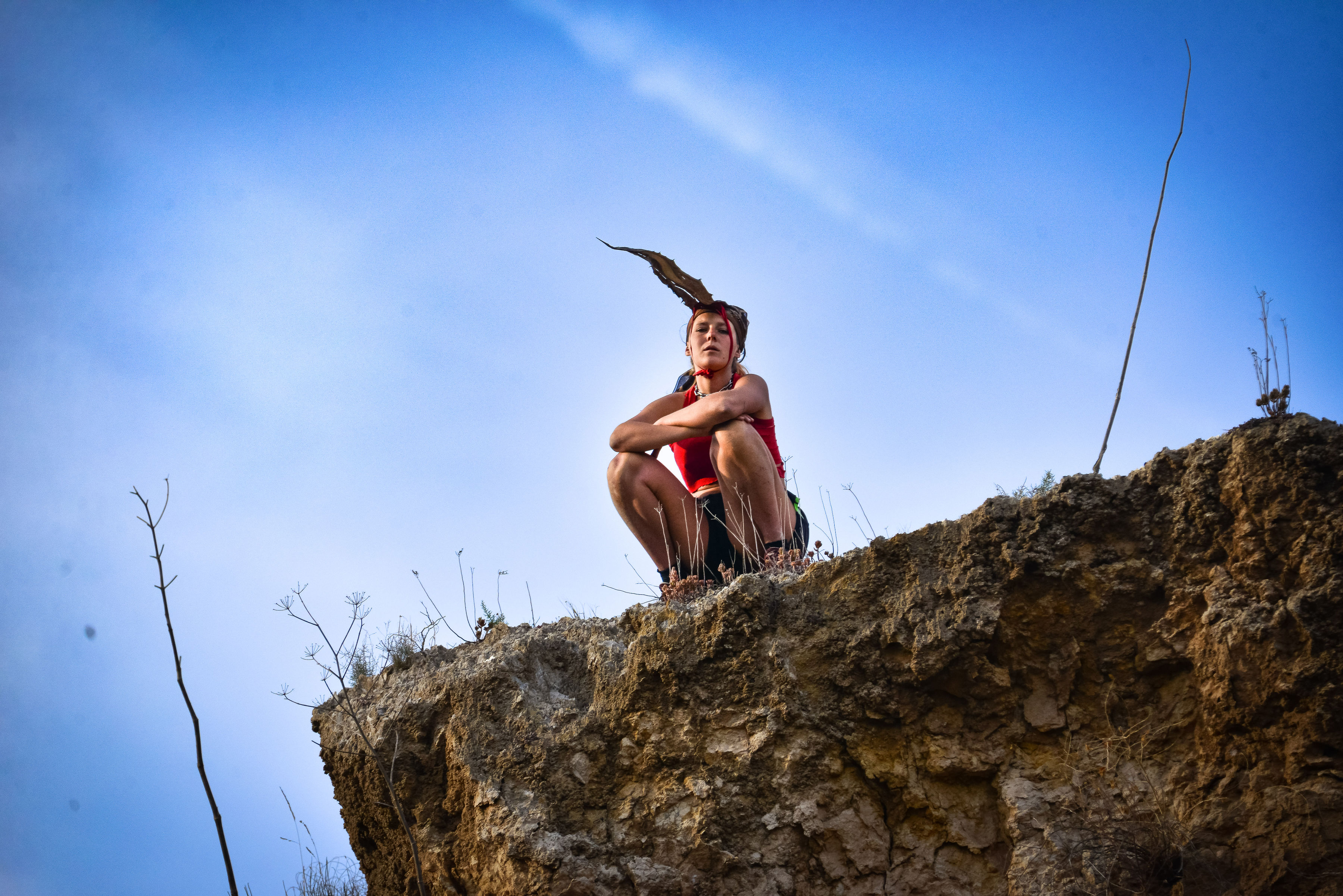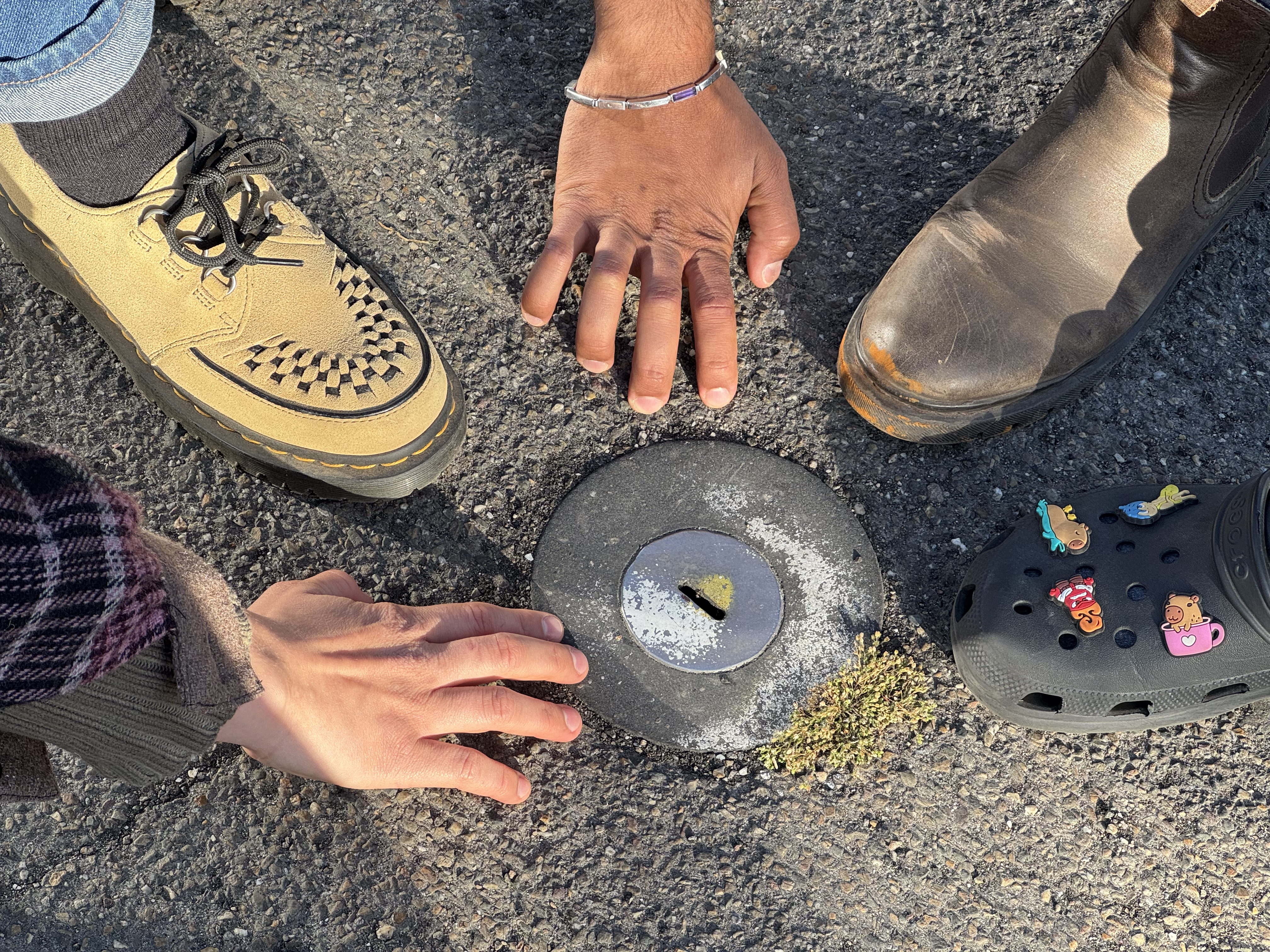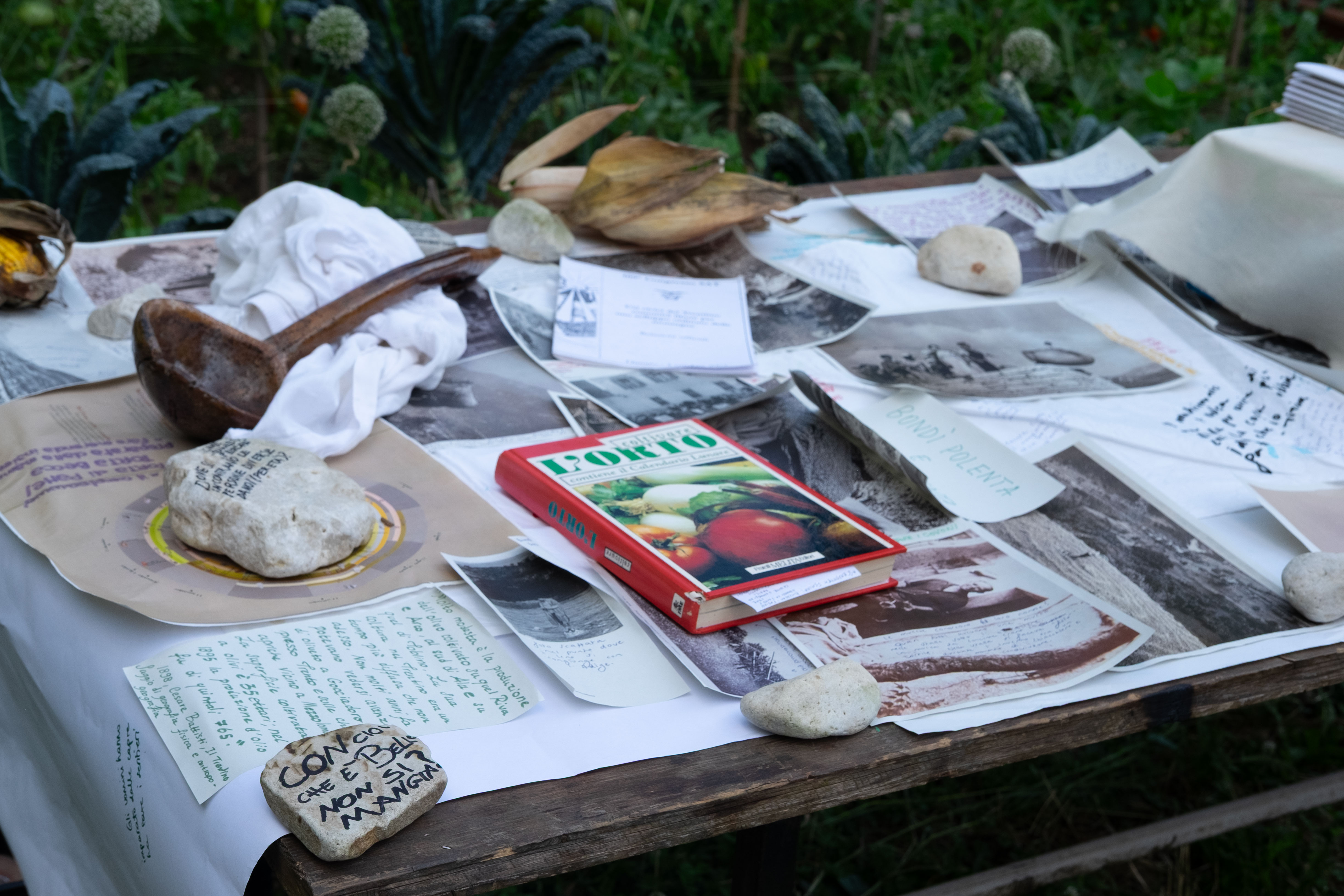
Guardare indietro al futuro
Looking back to the future
Creative ethnography laboratory
Keywords: transgenerational, agroecological knowledge, reminescence theatre, ethnography, collaborative zine-making
Concept - Shiftslow Collective
Emma Marzi, Carlo Sella, Catarina Simão, Vlio Velema
Hosted by - La Foresta Accademia di Comunità
In the frame of the EU-funded artistic residency project S4T (Station for Transformation)
Link to the zine ︎︎ HERE
Link to the video ︎ ︎︎︎ HERE
Looking back to the future
Creative ethnography laboratory
Keywords: transgenerational, agroecological knowledge, reminescence theatre, ethnography, collaborative zine-making
Concept - Shiftslow Collective
Emma Marzi, Carlo Sella, Catarina Simão, Vlio Velema
Hosted by - La Foresta Accademia di Comunità
In the frame of the EU-funded artistic residency project S4T (Station for Transformation)
Link to the zine ︎︎ HERE
Link to the video ︎ ︎︎︎ HERE
Looking back to the future is an transdisciplinary, intergenerational art project carried out during the residency of the ShiftSlow collective at the community hub La Foresta, in Rovereto (Northern Italy). The project brought together ten elders from the Vallagarina Valley, holders of agroecological knowledge and life experience rooted in the local fields and landscapes, and ten young participants interested in reimagining sustainable futures for the area’s rurality. The central question guiding the project was:
How can we rediscover and share the situated knowledge of Vallagarina in order to imagine a fairer agro-food system?
Over the past seventy years, the valley’s political-ecological landscape has undergone deep transformations: intensive monocultures of apples and grapes, the construction of large hydroelectric dams, and an accelerated consumption of land have reshaped the territory, erasing part of its identity. The project explored the dialogue between three temporal dimensions – past, present, and future – by documenting fading ecological knowledge, reframing it in the present, and co-creating future imaginaries rooted in a shared heritage. The activities were designed not to produce definitive answers, but to create the conditions for visions to emerge – connecting stories and desires, biographies and landscapes, material practices and speculative thinking. Informal moments, such as cooking and eating together, exchanging recipes, or sharing spontaneous stories, became equally important spaces for memory activation and community bonding. As a final outcome, we produced a zine publication functioning as a small affective and graphic archive of the process. Rather than a linear document, it offers a mosaic of images, words, and gestures, serving both as a record and as inspiration for similar initiatives elsewhere.
How can we rediscover and share the situated knowledge of Vallagarina in order to imagine a fairer agro-food system?
Over the past seventy years, the valley’s political-ecological landscape has undergone deep transformations: intensive monocultures of apples and grapes, the construction of large hydroelectric dams, and an accelerated consumption of land have reshaped the territory, erasing part of its identity. The project explored the dialogue between three temporal dimensions – past, present, and future – by documenting fading ecological knowledge, reframing it in the present, and co-creating future imaginaries rooted in a shared heritage. The activities were designed not to produce definitive answers, but to create the conditions for visions to emerge – connecting stories and desires, biographies and landscapes, material practices and speculative thinking. Informal moments, such as cooking and eating together, exchanging recipes, or sharing spontaneous stories, became equally important spaces for memory activation and community bonding. As a final outcome, we produced a zine publication functioning as a small affective and graphic archive of the process. Rather than a linear document, it offers a mosaic of images, words, and gestures, serving both as a record and as inspiration for similar initiatives elsewhere.
